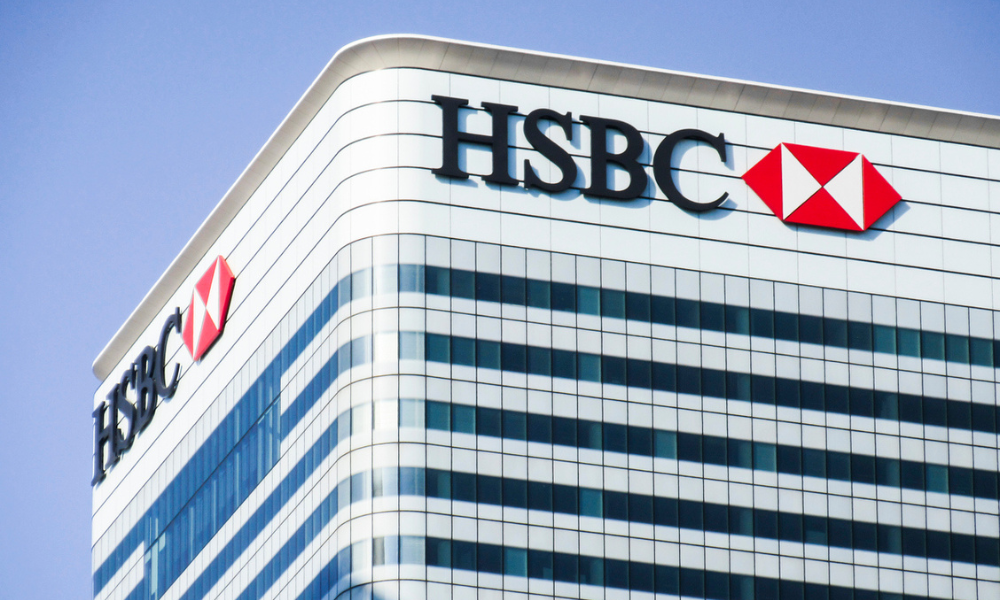New boss reported to be looking at jobs cuts as it seeks market share

Big mortgage lenders are slashing rates and fighting for mortgage market share – but at the same time they are actively looking to make systems more efficient, automate using AI and restructure to trim what they see as fat. And it looks like Britain’s largest bank is gearing up to continue downsizing where appropriate.
Read more: Lenders start cost cutting as mortgage rate battle increases
HSBC's new CEO, Georges Elhedery, is reportedly planning to merge the bank’s commercial banking unit with its global banking and markets division in an effort to cut costs by up to $300 million. This move, his first major restructuring effort since assuming the role, aims to streamline operations by eliminating overlapping senior management positions. Insiders indicate that this merger will specifically target the most expensive management layers to achieve savings.
The proposed restructuring, according to Financial Times sources, is set to be announced later this month, could see changes in top leadership roles. One potential adjustment might place Surendra Rosha, co-CEO of HSBC's Asia-Pacific operations, in charge of both the commercial and global banking units. Another option could have Patrick George, the global head of markets and securities, overseeing the markets business. Rosha, who began his career at HSBC as a trainee in 1991, has already held several senior positions, including CEO of the bank’s India operations.
The bank has urged employees to arrange three meetings per day before booking work-related travel. “The most important thing that we’ve said today is we are reconfirming our full-year target cost growth of 5%,” outgoing HSBC chief executive officer Noel Quinn told Bloomberg Television after announcing the bank’s second-quarter results. “We’re absolutely committed to that, we will not deviate from that and we’re on track to deliver that at the half year. So that is the most important thing.”
These cost-cutting efforts are part of HSBC's broader strategy to cope with declining profits, as lower interest rates begin to impact the bank’s revenue. While HSBC has benefited in recent years from elevated rates, the current trend of rate reductions could threaten its bottom line. The merger is aimed at reducing duplication and enhancing efficiency, which is crucial for a bank with 214,000 employees globally.
This latest plan follows earlier measures taken by other major UK lenders, including Standard Chartered and Lloyds. Standard Chartered launched its "Fit for Growth" initiative, allocating $1.5 billion to streamline expenses, while Lloyds instructed its staff to use cost-efficient transportation and restricted premium travel options. HSBC’s previous attempts to merge parts of its commercial and investment banking units were delayed due to the COVID-19 pandemic.
Read more: HSBC nips at Barclay’s heels
Now, Elhedery appears ready to push through with this long-delayed integration, focusing on reducing the layers of top management to cut down on overlapping functions. Previous leadership had been frustrated with the slow pace of cuts to central operations, particularly in London, and this new approach aims to address those concerns.
Elhedery’s strategy mirrors actions taken by other major lenders like Barclays, which has also faced declining market share in the mortgage sector and is exploring property and infrastructure cuts to manage costs. Standard Chartered’s CFO Diego De Giorgi emphasized the importance of controlling even minor expenses but acknowledged that such measures alone would not drive the deep transformation needed to significantly reduce costs.
For HSBC, the restructuring, although potentially disruptive, is expected to save around $300 million, accounting for just 1% of its total costs of $32 billion last year. Some analysts have predicted that he will want to find $2 billion to shave of costs, so this is a small drop in the cost cutting bucket.
“Job cuts, further disposals and organization streamlining are all potential options on the table,” said an Bloomberg Intelligence analyst Tomasz Noetzel, “The new CEO may need to dial up focus on cost cuts as there is little or no room to bolster revenue in declining rates environment.”
Elhedery has told employees that his focus is to spend wisely, not necessarily less. Under its previous CEO, Neil Quinn, the giant bank has trimmed around 50,000 jobs over the last decade.
Georges Elhedery, has had an impressive rise within the bank, marked by his strategic acumen and ability to manage complex situations. Born in Lebanon during the civil war, Elhedery grew up in a divided Beirut before moving to Paris to pursue studies in engineering at École Polytechnique, followed by a postgraduate degree in statistics and economics. His career in banking began as a rates trader within HSBC's Global Banking and Markets division, where he quickly moved up the ranks.
In 2016, Elhedery took charge of the Middle East, North Africa, and Turkey region, overseeing a wide array of operations, including risk management, compliance, and capital allocation. His leadership spanned the bank's business lines, and he managed a team of 10,000 employees. He later became co-head of the Global Banking and Markets division in 2020, succeeding another Lebanese-born banker, Samir Assaf.
However, the onset of the COVID-19 pandemic brought global business to a standstill, severely affecting HSBC's dealmaking and activities, particularly in Hong Kong, its most profitable market.
After a challenging period, Elhedery took a six-month sabbatical in early 2022 to recharge and spend time with his family. During this break, he also learned Mandarin, hinting at his ambition for a future leadership role within the Asia-focused bank. He returned to work later that year, assuming the role of chief financial officer, which further bolstered his credentials despite some initial skepticism from analysts.
Elhedery’s promotion to CEO comes at a time when HSBC faces geopolitical challenges and economic pressures, including rising tensions between the West and China. With central banks expected to cut interest rates, the bank’s profit margins could be squeezed. Investors are optimistic about his appointment, viewing him as a steady hand capable of navigating these complexities and delivering on the bank’s current objectives without major strategic shifts.



